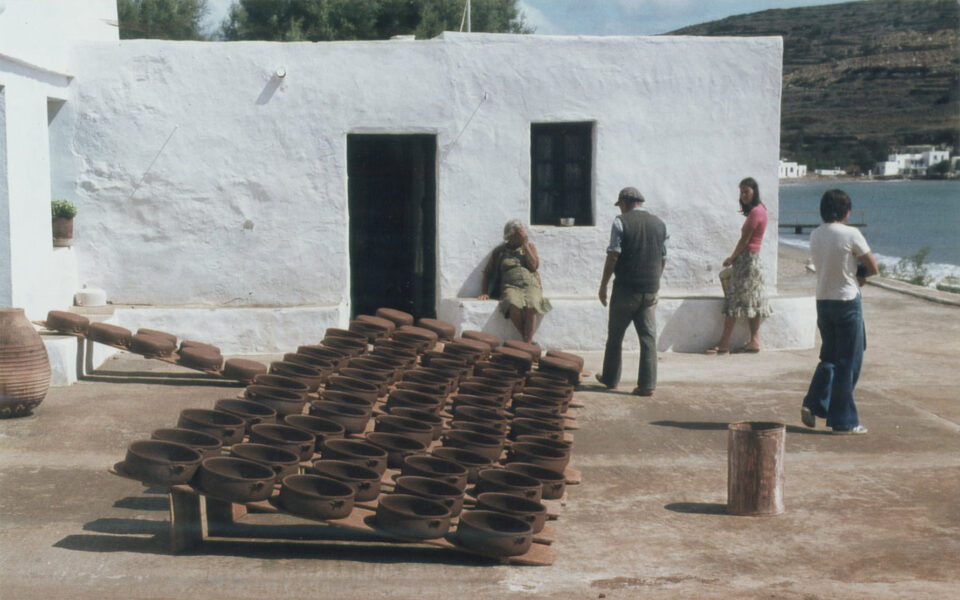Founded in 2019 by a team of local and international experts based in Athens and the island of Syros, the Archipelago Network has unveiled two new projects dedicated to protecting and revitalizing the rich heritage of the Cyclades. The nonprofit organization’s latest initiatives, made public this week, focus on pottery making on Sifnos and traditional maritime trades and crafts in Greece’s most famous island region.
Sifnos boasts a remarkable legacy in pottery, with over 14 pottery workshops that have been crafting one-of-a-kind ceramic objects for generations. Supported by the Ministry of Culture, the “Pottery of Sifnos” program aims to preserve and promote this tradition, which dates back to the Early Cycladic period.
“Our engagement with Sifnos began when we were approached by local community members involved in the effort to start a museum for pottery on the island,” Archipelago Network founder and lead researcher Jacob Moe says of the Ceramic Museum of Sifnos, which is currently in the offing.
Working in cooperation with the Sifnos Pottery Association and the working group for the Ceramic Museum of Sifnos, the organization is carrying out interdisciplinary research in the field, led by curator Lydia Matthews from the Parsons School of Design and Ioanna Theocharopoulou from Cornell University.
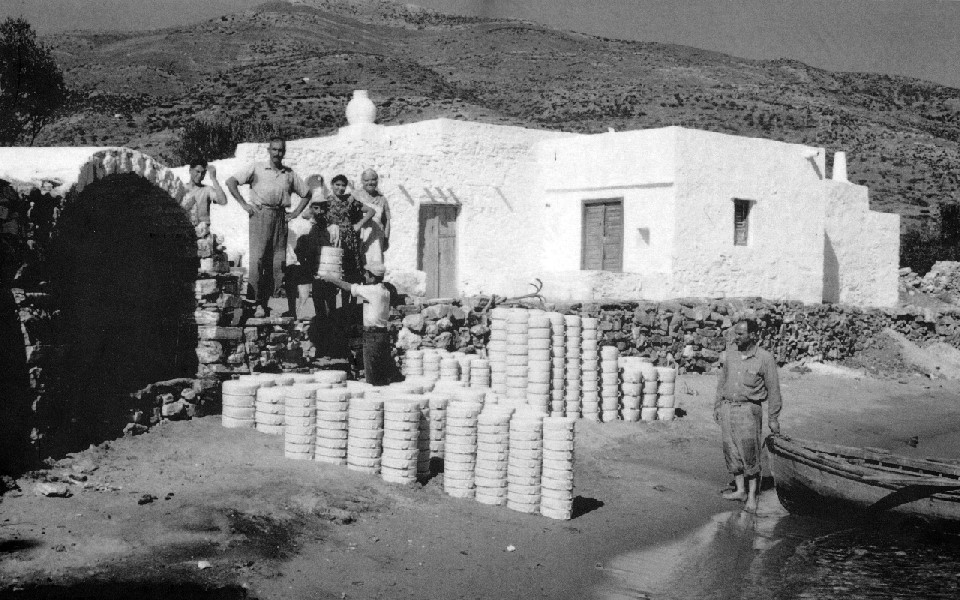
© Archipelago Network
One aspect of the program involves digitizing the photographic archives of eight traditional pottery workshops on the island, as well as valuable diagrams, notes and photographs from the Ceramic Crafts Collection of postwar artist and architect Cosmas Xenakis (1925-1984). Additionally, the initiative aims to create 13 ethnographic documentaries exploring the cultural significance of Sifnian pottery, which will be screened on Sifnos in late June.
“Pottery is closely linked with the island’s culture and economy, and is a successful example of the coexistence of traditional culture and tourism,” Moe says.
“In order for it to survive and evolve, we must support it with institutions and targeted actions,” he says, stressing the need for a museum and a school of fine arts, similar to the School of Fine Arts in Pyrgos on Tinos which specializes in marble craftsmanship.
The Archipelago Network plans to make the fruits of their labors widely available through an open-access archive on their website. The material will also contribute to the Ceramic Museum of Sifnos, cementing the preservation of Sifnian pottery for generations to come.
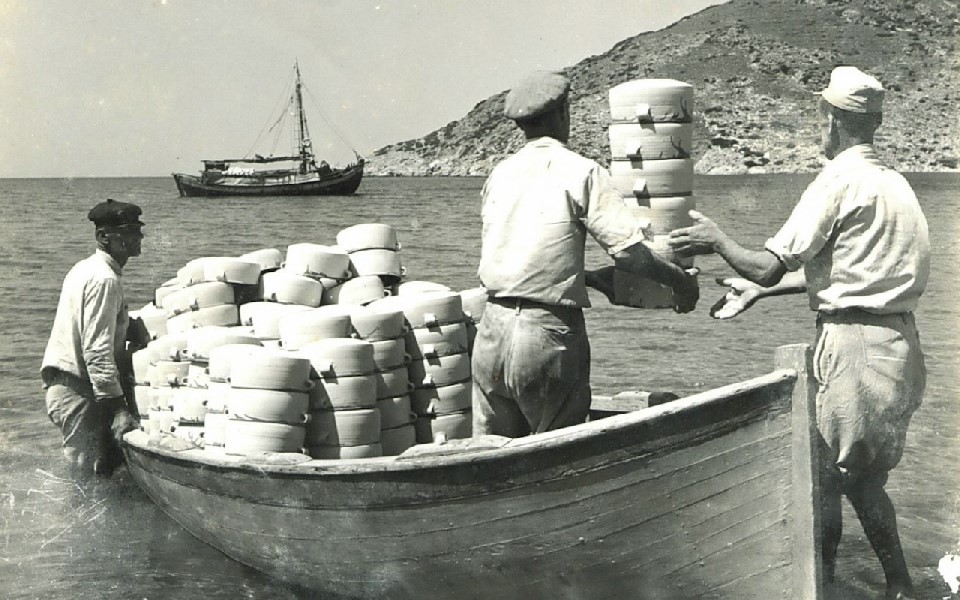
© Archipelago Network
Sea trades
In parallel, the Archipelago Network’s project on “Maritime Trades of the Cyclades” is designed to preserve the endangered traditional activities associated with the marine environment in the area.
Their motivation was concern that invaluable practices such as wooden-boat building or ship carpentry, small-scale fishing and seafaring are at risk of dying out. Hundreds of Greek fishermen have in recent years voluntarily turned in their fishing licenses and taken their boats to the scrapyard, also in response to financial incentives provided by the European Union as part of a scheme aimed at safeguarding dwindling fish stocks.
“Boatbuilding, small-scale fishing, and the seafaring knowledge related to these professions are all at critical risk, significantly altering the relationship of Aegean island populations with the sea,” Moe says.
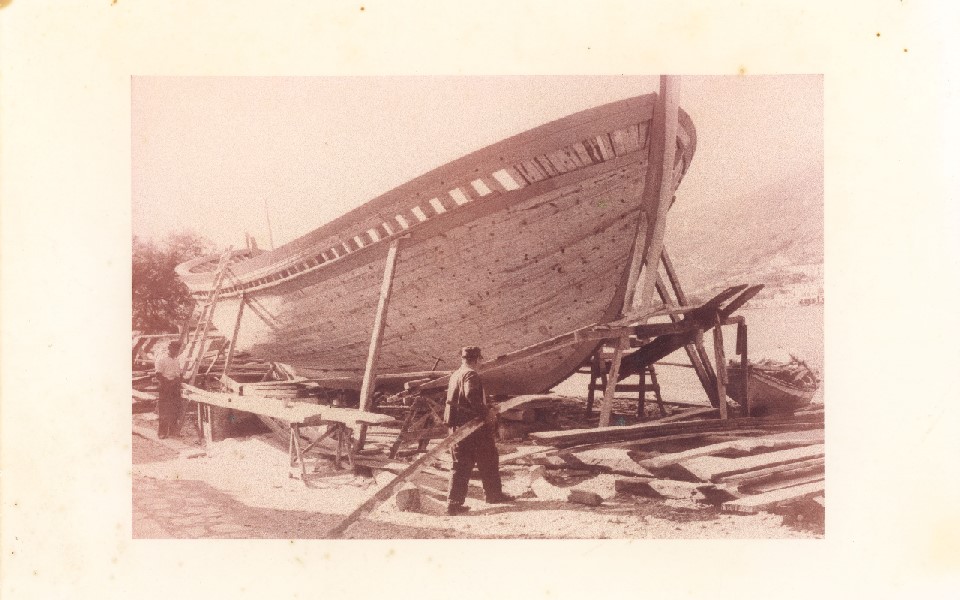
© Archipelago Network
With the support of the Costas M. Lemos Foundation, this project employs a multilayered research approach to safeguard the oral traditions, social practices, rituals, festive events and know-how intertwined with the maritime trades of the Cyclades. Focusing on Syros, Paros, Santorini, Amorgos and Koufonisi, the researchers are digitizing audiovisual archives and producing visual ethnographic material in order to document historical evidence as well as contemporary practices.
This data will also become freely accessible on the Archipelago Network’s online platform. In addition to documentation and research, the organization has plans for an in situ program that will include a traveling exhibition and educational workshops. Once again, the ambition is to share their discoveries, as well as their vision, with a wider audience.
“At a time when questions of sustainable development and climate change are at the forefront of EU and national agendas, we can learn from these local forms of knowledge that have operated for centuries with a keen awareness and respect for the marine environment,” Moe says.
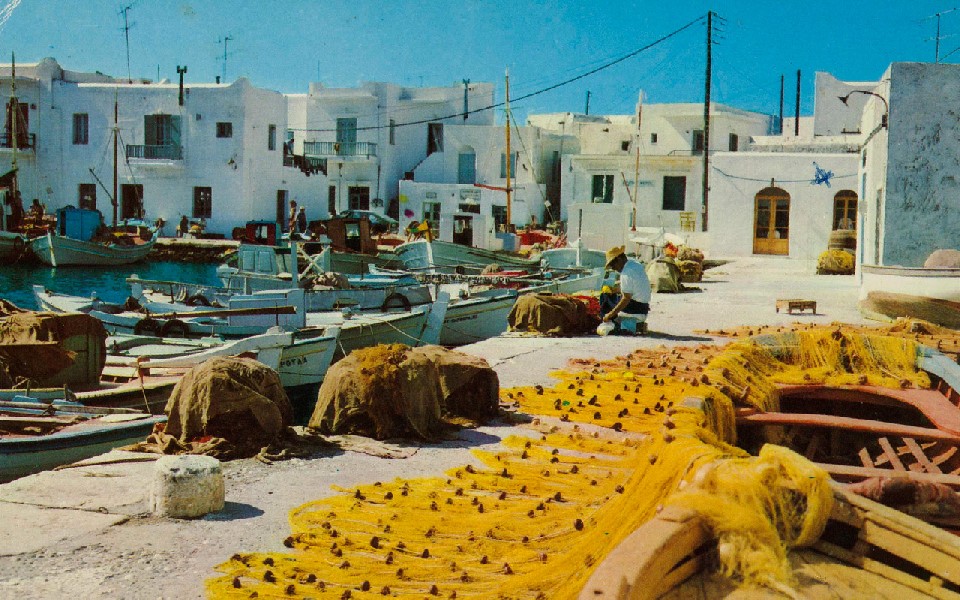
© Archipelago Network
Beyond the Aegean
Expanding its reach beyond the Aegean, the Archipelago Network has embarked on two interregional projects: “Communities Between Islands” and “Mirrors: Trans-Mediterranean Archive Dialogue.”
These initiatives will take the team to Mediterranean coastlines and islands that lie farther afield, enabling them to forge alliances with local communities in Beirut, Cairo, Corsica and Sardinia.
Through these interconnected activities, the Archipelago Network strives to nurture diverse forms of material knowledge and cultural practices that address pressing social and environmental challenges.
More details about the activities will become available soon. For additional information, visit archipelagonetwork.org.
This article was previously published at ekathimerini.com.

